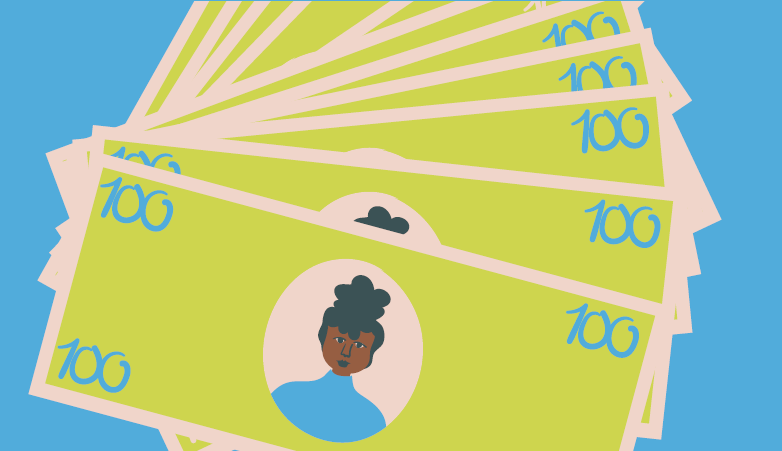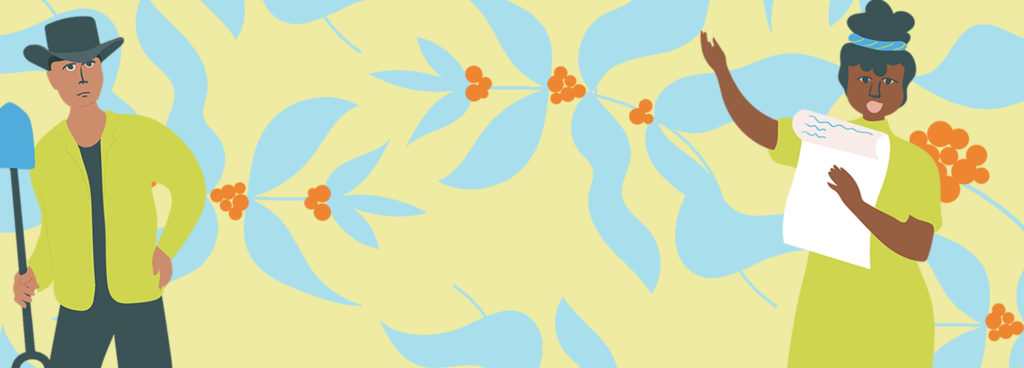With time running out to avert a climate catastrophe, Fairtrade producer networks have come together to send a clear message to world leaders.
They want the governments most responsible for carbon emissions to keep their climate promises to farming communities suffering from a crisis they have done little to cause.
Together, the Fairtrade producers warn world leaders that their broken promises are harming farmers’ livelihoods, with poverty growing in communities, threatening the future of the food they grow – food we eat worldwide each day.
Fairtrade farmers and workers are urging governments to Be Fair With Your Climate Promise. Their open letter is signed by representatives of Fairtrade producer networks in Africa, Asia, Latin America and the Caribbean, who speak on behalf of 1.8 million Fairtrade farmers and workers worldwide.
By signing our petition in solidarity with Fairtrade farmers and workers, you can remind world leaders why it’s vital that they listen to the needs and expertise of farming communities. Businesses sourcing from Fairtrade producers have also signed a climate pledge, backing the call for change.


Four calls from Fairtrade farmers to world leaders
1. Ensure the $100 billion per year they pledged for climate action reaches those who need it most
World leaders promised to give $100bn annually to support low-income countries to fight climate change.
This money is vital for ensuring agricultural communities can meet the costs of farming in ways that can withstand extreme weather and produce fewer emissions.
If a farmer can’t even afford decent healthcare, housing or nutritious food, because they earn too little for their crops, how can we expect them to invest in greener farming methods or in crops that can withstand extreme weather?
So, unless wealthy governments provide farmers and workers with financial support, they will struggle to protect their families, crops and communities from the climate catastrophe.
2. Take responsibility for international aviation and shipping emissions in their green commitments
Many governments ignore the vast amount of emissions generated when they import foods and goods to their countries by ship or plane.
Fairtrade producers want world leaders to be honest about the carbon emissions that they are ultimately responsible for, including those from aviation and shipping.
It’s time rich nations stopped dumping their climate duties on those who have done the least to cause the problem. And it’s time they stopped offsetting their emissions (i.e. compensating for their emissions at home by paying for carbon-cutting measures in other countries).
Unless they get real about their carbon footprint, global temperatures will continue to rise and farming communities across Asia, Africa, Latin America and the Caribbean will continue to suffer the horrifying consequences of floods, storms, droughts and other climate extremes.
Two Fairtrade cocoa farmers speak about their own experiences:
3. Make trade deals that are good for the environment
Fairtrade farmers and workers want world leaders to ensure that any future trade deals they make with other countries are good for the environment, and drive trade in fair, low-carbon produce.
That’s why they’re urging governments to avoid doing trade deals that drive high levels of carbon emissions, such as those that encourage dirty energy, such as fossil fuels.
These trade deals must play their part in tackling climate change and support farmers (and businesses) who invest in sustainable farming. Unless they put the planet before profit, farmers in climate-vulnerable countries will continue to be exploited and continue to be at threat from climate extremes.
4. Strengthen rules so that businesses have to invest in fair, sustainable supply chains
The letter asks governments to strengthen policies and rules that will encourage businesses to invest in greener, more sustainable supply chains, and pay fair prices to farmers.
These rules should compel businesses to take ownership of the environmental issues in their supply chains. With ‘environmental due diligence’ processes in place, they’d be obliged to identify, address and account for any environmental harm caused by their operations. This includes deforestation, the second biggest contributor to climate change.
Those who fall short of their responsibilities in this area should be compelled to do better. What’s more, businesses must take the responsibility for this: smallholder farmers and workers, who earn so little, must not be left facing the bill for cleaning up supply chains. Otherwise, they will continue to struggle to afford to protect themselves and their crops from the climate crisis.
Sign the petition in support of the farmers’ asks
